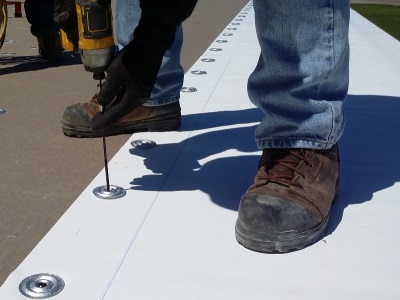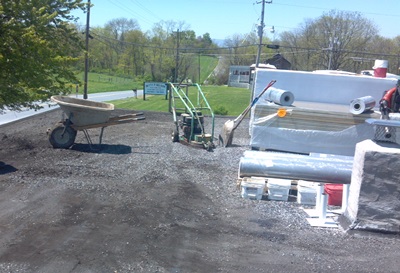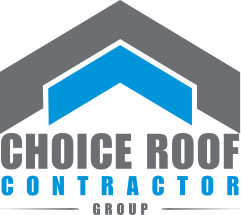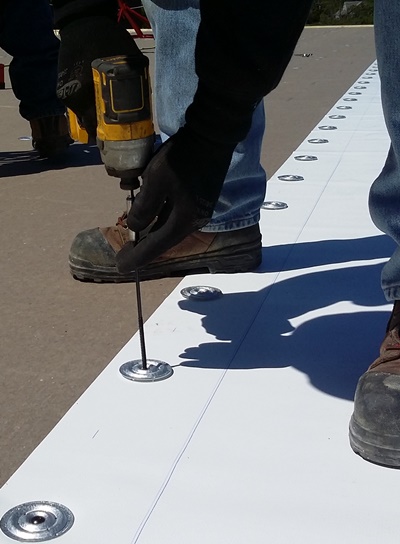

Because of their impressive weather resistance, they continue to grow in popularity throughout the country and perform well on both flat and low-slope roofs. An ideal option for commercial properties, they are durable enough to withstand oils and fuels, making them a common choice for the restaurant and aviation industries.
Leading Benefits of PVC
PVC roofs are a premium choice as they offer watertight protection in severe weather elements. Ponding water is no threat for a PVC roof when professionally installed and maintained. Other leading benefits a PVC roofing system can offer include:
- Easily recyclable
- Energy efficient
- Flexible
- Versatile and customizable
- Lengthy lifespan
- High flame resistance
- Heat-welded seams provide increased durability
- Wind resistant
- Chemical resistant
- Limited maintenance
- Lightweight
- Straightforward application
Application
The three most common ways to apply a PVC roof are ballasted, mechanically attached, and fully adhered. When an experienced and professional roofing contractor is applying the PVC roof, you can trust that any of these methods will deliver a long-lasting, durable roof as the seams are heat-welded to create the monolithic bond required for watertight protection.
To reduce heat loss and ensure elevated levels of energy efficiency, insulation board is installed prior to the PVC material. The type of insulation and the thickness can vary. PVC material comes in varying roll sizes and is rolled in a straight line over the top of the insulation board. Depending on the application type chosen, the PVC material is securely attached to the roof. Which method you choose will depend on your preference, location, season and more.
Drawbacks to Consider
With all investments, it is best to know the drawbacks as well as the advantages. Thankfully, with PVC roofing systems, there are few to consider. PVC roofing systems will perform best when installed on a smooth surface. This means that older roofs may not always be ideal candidates for a PVC roof and a tear off may be required. This can be a costly venture if it is necessary. PVC is a great option for varying weather conditions, although intense cold can cause it to become brittle and in turn crack; although we are talking about intense cold around -50°F, so it is still well suited in many parts of the country. Lastly, if you are looking at attaching your PVC roof with an adhesive, this is best done in the warmer months as the adhesive can freeze and therefore will not secure properly. PVC roofs certainly have more to offer than not, but location and other factors must be considered when looking into investing in a new roofing system for your property.
Resistance You Can Rely On
Need a Local Expert?
Our group works together to provide:
- Larger Base of Knowledge
- Group-Wide Accountability
- Set Standards for Service
- More Peace of Mind
With an experienced roofing contractor installing and maintaining a PVC roof, it can have an expected lifespan of three decades. Thirty years is a great return on investment. With trusted protection and energy efficiency, they provide buildings with a better chance at maintaining value.
If you are considering PVC and/or other types of roofing systems, feel free to give us a call at 800-670-5583.



